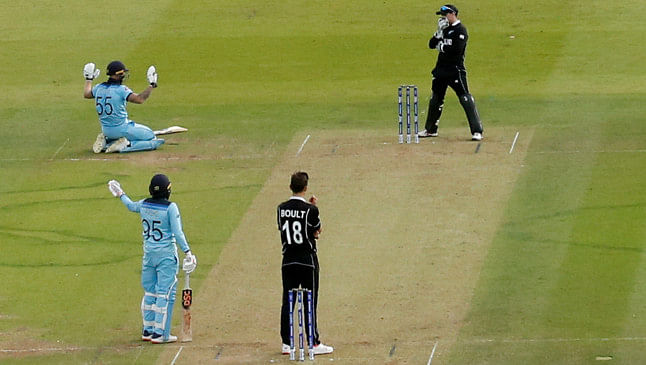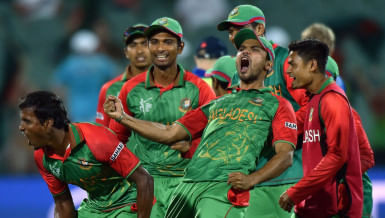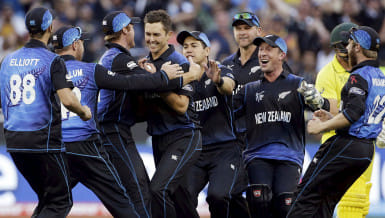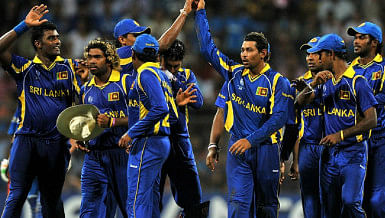Former international umpire Simon Taufel said that England should have been awarded five runs instead of the six they were actually awarded in their enthralling final against New Zealand, that saw England clinch their maiden World Cup on boundary count after both the 50-over game and the super over ended in a tie at Lord’s in London yesterday.
In chase of New Zealand’s 241 for eight, when England needed nine off the final three balls of the game, all-rounder Ben Stokes struck the ball to deep and scampered back for a second run -- to keep the strike. However, the throw from Martin Guptill that came in from the deep had ricocheted off Stokes’ hand and went for a boundary after he had dived to complete the second run.
The on field umpires -- Marais Erasmus and Kumar Dharmasena -- had awarded England six runs, leaving the eventual champions needing another three runs off two balls. However, Taufel explained, that the umpires made an error in judgement and that only five runs should have been awarded.
"There was a judgment error on the overthrow," Taufel told The Age and Sydney Morning Herald -- two Australian based Newspapers.
"The judgment error was the timing of when the fielder threw the ball. The act of the overthrow starts when the fielder releases the ball. That's the act.
"It becomes an overthrow from the instant of the throw."
Taufel explained that the umpires had a raft of things to consider every ball.
"In this particular case, the umpires have got a lot on their plate, because like every ball, they've had to watch the batsmen complete the first run, they've had to watch the ball being fielded, to understand how it's in play, whether the fielder's done the right thing. Then they've got to look to see when the ball is released, in case there is an overthrow. And that happens every delivery of the game. And then they've got to back to see where the two batsmen are,” told Taufel.
He also defended the onfield umpires who officiated the game as he said that it becomes really tough for them as they need to make a lot of decisions in a single game.
"They've then got to follow on and see what happens after that, whether there is a run out, whether there's an 'obstructing the field', whether the ball is taken fairly. There's multitudes of decisions to be taken off the one delivery. What's unfortunate is that people think that umpiring is just about outs and not outs. They forget we make 1000s of decisions every match.
"So it's unfortunate that there was a judgment error on the timing of the release of the ball and where the batsmen were. They did not cross on their second run, at the instant of the throw. So given that scenario, five runs should have been the correct allocation of runs, and Ben Stokes should have been at the non-striker's end for the next delivery.
"We're not perfect. You've got the best two umpires in the elite panel doing the final. They're doing their best like the other two teams are. This is just part of the game.
"I think it's unfair to say that the World Cup was decided by that one event. There's a lot of 'what ifs' and 'what should bes' and 'what could bes' that happen off those 600-plus deliveries. That's the nature of sport.”


 For all latest news, follow The Daily Star's Google News channel.
For all latest news, follow The Daily Star's Google News channel. 









Leave your comments